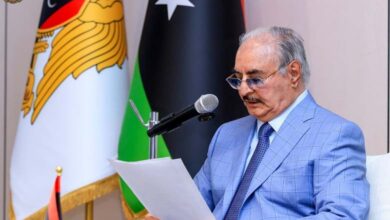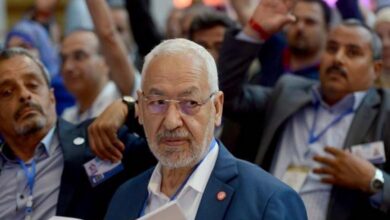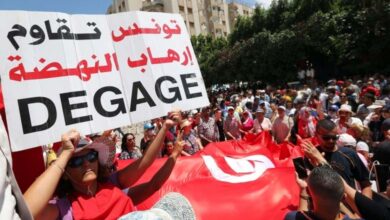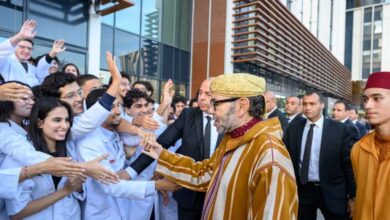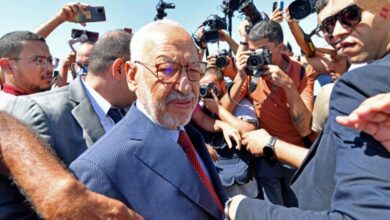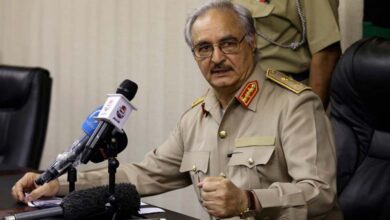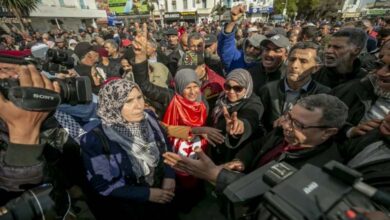International concern over the continuation of the political impasse in Libya – What are the solutions?
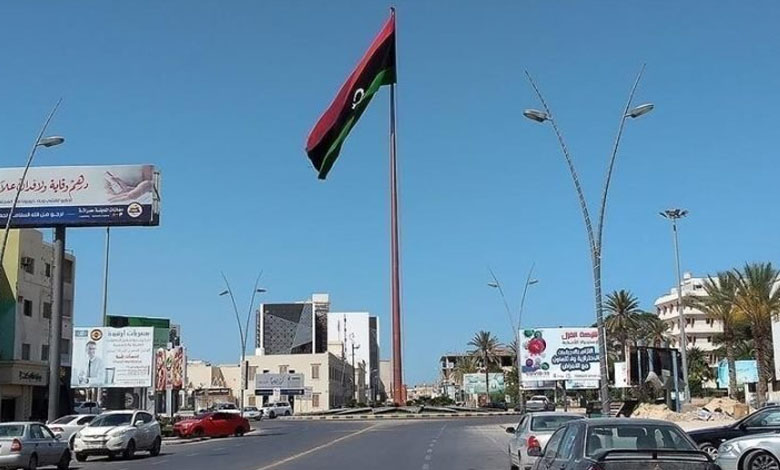
Members of the Security Council expressed deep concern at the continuing political impasse in Libya and disappointment at the lack of progress, which continues to threaten the stability and unity of the country, nearly a year after the decision to hold elections on 24 December 2021, and more than two years after the Libyan Political Dialog Forum Roadmap Agreement.
International invitations
According to the UN Information Center, Security Council members expressed strong support for the UN Special Representative of the Secretary-General for Libya and Head of the UN Support Mission in Libya, Abdoulaye Bathily, and his efforts to generate new momentum in Libya’s faltering political process and improve stability in the country.
They welcomed the intensive consultations conducted by the Special Representative with Libyan stakeholders and the international community and reiterated their invitation to all Libyan parties and key stakeholders to engage in a constructive, full and consensual dialog with the Special Representative of the Secretary-General and each other in a transparent and inclusive manner.
They called on all actors to maintain calm on the ground and to meet under the auspices of the United Nations to agree quickly on a way forward, to finalize a political settlement, including the constitutional basis, for the holding of free, fair, transparent and inclusive national presidential and parliamentary elections as soon as possible throughout the country, and encouraged all actors to complete their efforts in this regard.
Conduct of elections
The members of the Security Council reiterated their strong support for the Libyan people to determine who governs them through the elections and to ensure that this legitimate demand is heard through the political process. They noted that all Libyan stakeholders had previously provided strong guarantees to support and respect the independence and integrity of the electoral process, as well as the election results, and urged them to abide by these guarantees, in line with their political responsibilities to the Libyan people. The members of the Security Council affirmed their commitment to support the inclusive Libyan dialog aimed at, inter alia, forming a unified Libyan government capable of governing throughout the country and representing the entire Libyan people.
National dialog
The members of the Security Council stressed the importance of an inclusive national dialog and reconciliation process based on the principles of transitional justice, encouraged the continued efforts of the Presidential Council with the support of UNAMSIL and the African Union in this regard, and called for the full, equal, effective and meaningful participation of women at all levels, including in leadership positions, in all activities and decision-making processes related to political transition, conflict resolution and peacebuilding, youth engagement and civil society representation.
They also stressed the importance of providing a safe environment for civil society organizations to operate freely and protect them from threats and reprisals. The members of the Security Council noted that progress in the political process should be accompanied by constructive engagement in the economic and security tracks, as well as improvements in respect for human rights. The members of the Security Council reaffirmed the importance of establishing a Libyan-led mechanism that would bring together stakeholders from all over the country to determine expenditure priorities and ensure that oil and gas revenues are managed in a transparent, equitable and accountable manner for the benefit of the Libyan people and under effective Libyan supervision.
The members of the Security Council called on all parties to uphold the 23 October 2020 Ceasefire Agreement and reiterated their call on all parties to expedite the full implementation of its provisions, including the action plan agreed by the 5+5 Joint Military Commission in Geneva on 8 October 2021, which will be implemented simultaneously, phased, incremental and balanced.
Resolving the Libyan Crisis
Dr. Mohamed Al-Zubaidi, the Libyan political analyst, said that the current situation in Libya requires no continuous procrastination that does not lead to the elections, and that quick solutions are necessary in order to save the Libyan state from the legal and constitutional blockage that will reach it.
The political analyst called for more international pressure, and said that any progress on the Libyan issue must be achieved through this pressure, which led the Libyans to agree to a ceasefire and go to political dialog and a unified government and presidential council.
It is also necessary to put pressure on the parties that are obstructing the holding of elections or on the path of negotiations, he said, noting that the current period requires coming together for the greater good of Libya and working to find political solutions quickly in the coming period in order to complete the elections and get out of the dark tunnel.


